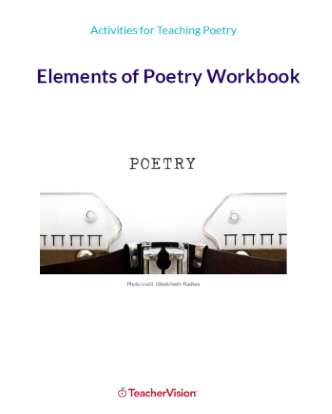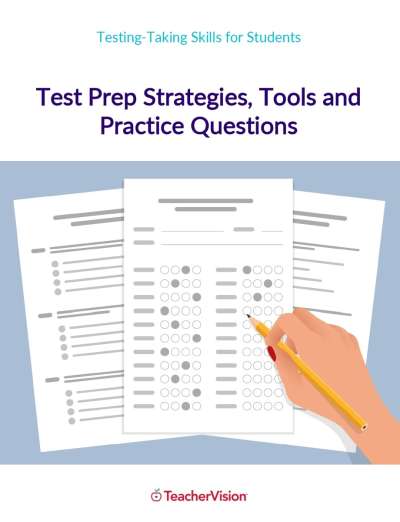Jerry Spinelli's ground-breaking novel for young adults, Milkweed, is a fascinating, intimate look inside the horror of the Warsaw Ghetto during the Holocaust. Students and teachers may have many questions about the creation and meaning of this book. The interview below will, hopefully, answer those questions
To learn more about Jerry Spinelli, visit his website.
About Milkweed
![]() TeacherVision: Misha's perceptions of the world around him are so naive. He seems to have a hard time recognizing the horror of what is really going on. Do you think this is normal for a child? Is his innocence a literary device that you used in order to take a different approach to describing the Holocaust?
TeacherVision: Misha's perceptions of the world around him are so naive. He seems to have a hard time recognizing the horror of what is really going on. Do you think this is normal for a child? Is his innocence a literary device that you used in order to take a different approach to describing the Holocaust?![]() Jerry Spinelli: I never thought of it as a "literary device." His innocence, naivity --call it what you will -- is simply the answer to the question: What would a child have been like who was orphaned at a very early age and found himself alone in wartime Europe? I expect that a child in such circumstances would be, as your question implies, anything but normal. The result, for this writer, was an unusual point of view that offered the opportunity to tell an old story (there are no new stories, really) in a new way.
Jerry Spinelli: I never thought of it as a "literary device." His innocence, naivity --call it what you will -- is simply the answer to the question: What would a child have been like who was orphaned at a very early age and found himself alone in wartime Europe? I expect that a child in such circumstances would be, as your question implies, anything but normal. The result, for this writer, was an unusual point of view that offered the opportunity to tell an old story (there are no new stories, really) in a new way.
![]() TeacherVision: The Holocaust happened many years ago and has been written about endlessly. Why do you feel it is important to continue writing about it?
TeacherVision: The Holocaust happened many years ago and has been written about endlessly. Why do you feel it is important to continue writing about it? ![]() Jerry Spinelli: Because there is no statute of limitations on humanity. Because history sits on the shoulder while story unlocks the heart. Because to those involved, there was not a Holocaust of six million, but six million Holocausts of one.
Jerry Spinelli: Because there is no statute of limitations on humanity. Because history sits on the shoulder while story unlocks the heart. Because to those involved, there was not a Holocaust of six million, but six million Holocausts of one.
![]() TeacherVision: The events are so horrifying, and so vivid in your descriptions. Do you worry about the effect that this book might have on young readers?
TeacherVision: The events are so horrifying, and so vivid in your descriptions. Do you worry about the effect that this book might have on young readers? ![]() Jerry Spinelli: I believe readers are best served not by writing "for them" but by interviewing the story itself and writing it as it wants and needs to be written.
Jerry Spinelli: I believe readers are best served not by writing "for them" but by interviewing the story itself and writing it as it wants and needs to be written.
![]() TeacherVision: What would you say to a teacher who thought this subject matter might be too horrible for her students?
TeacherVision: What would you say to a teacher who thought this subject matter might be too horrible for her students?![]() Jerry Spinelli: I would say consider the story as a whole, that in the end, in one person's life, there is triumph over tragedy. I would say consider the many positive moments throughout the story, moments whose lights shines all the brighter for the surrounding darkness. I would say that young readers, especially in school environments, take their literary cues from teachers, and if their teachers ride the positive thrust of a story, so will they.
Jerry Spinelli: I would say consider the story as a whole, that in the end, in one person's life, there is triumph over tragedy. I would say consider the many positive moments throughout the story, moments whose lights shines all the brighter for the surrounding darkness. I would say that young readers, especially in school environments, take their literary cues from teachers, and if their teachers ride the positive thrust of a story, so will they.
![]() TeacherVision: Although Milkweed is a novel, we know that it is based on events that happened in Warsaw, Poland, beginning about 1939. What led you to choose this place and time as the background for your story?
TeacherVision: Although Milkweed is a novel, we know that it is based on events that happened in Warsaw, Poland, beginning about 1939. What led you to choose this place and time as the background for your story?![]() Jerry Spinelli: Looking at history book pictures of Holocaust victims is one of my earliest memories. I've had a lifelong interest in World War II in general and Holocaust events and literature in particular. The stories have touched me. In writing Milkweed, I was simply following the advice I give aspiring writers: Write what you care about.
Jerry Spinelli: Looking at history book pictures of Holocaust victims is one of my earliest memories. I've had a lifelong interest in World War II in general and Holocaust events and literature in particular. The stories have touched me. In writing Milkweed, I was simply following the advice I give aspiring writers: Write what you care about.
![]() TeacherVision: Do you personally know a survivor of the Warsaw ghetto, or a descendant of a survivor?
TeacherVision: Do you personally know a survivor of the Warsaw ghetto, or a descendant of a survivor? ![]() Jerry Spinelli: Yes, I do, though he was not a source for the story.
Jerry Spinelli: Yes, I do, though he was not a source for the story.
![]() TeacherVision: Is the lead character, Misha, based on a real person? Are any of the other characters based on real people?
TeacherVision: Is the lead character, Misha, based on a real person? Are any of the other characters based on real people?![]() Jerry Spinelli: There are bits and moments of people I know (including myself) in most of the characters, though none was inspired primarily by a particular acquaintance. Historically speaking, of course, there are the characters of Dr. Korczak and Himmler.
Jerry Spinelli: There are bits and moments of people I know (including myself) in most of the characters, though none was inspired primarily by a particular acquaintance. Historically speaking, of course, there are the characters of Dr. Korczak and Himmler.
![]() TeacherVision: Janina guesses that Misha is about 8 years old. Do you agree with her assessment?
TeacherVision: Janina guesses that Misha is about 8 years old. Do you agree with her assessment?![]() Jerry Spinelli: I've never precisely pegged Misha's age myself. Eight or nine sounds about right.
Jerry Spinelli: I've never precisely pegged Misha's age myself. Eight or nine sounds about right.
![]() TeacherVision: Are some of the events, such as the man being forced to scrub the sidewalk with his beard, things that were described to you, or that you read about? That is, did they actually happen?
TeacherVision: Are some of the events, such as the man being forced to scrub the sidewalk with his beard, things that were described to you, or that you read about? That is, did they actually happen?![]() Jerry Spinelli: Many if not most of the events in the story actually happened at one time or another, in one place or another, during that period.
Jerry Spinelli: Many if not most of the events in the story actually happened at one time or another, in one place or another, during that period.
![]() TeacherVision: The milkweed plant seems to represent physical and spiritual survival in your book. It travels freely and sprouts almost anywhere. Janina calls milkweed "her angel"-her inner spirit that can fly away. Did you call your book Milkweed in order to inject a ray of hope in an otherwise bleak story?
TeacherVision: The milkweed plant seems to represent physical and spiritual survival in your book. It travels freely and sprouts almost anywhere. Janina calls milkweed "her angel"-her inner spirit that can fly away. Did you call your book Milkweed in order to inject a ray of hope in an otherwise bleak story?![]() Jerry Spinelli: In a word, yes -- though as I've noted, there are many rays of hope in the story.
Jerry Spinelli: In a word, yes -- though as I've noted, there are many rays of hope in the story.




